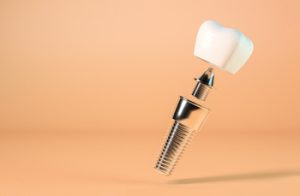Dental tourism is gaining traction, with Bali now a favoured destination for many seeking dental work while enjoying a vacation. Imagine getting dental implants while surrounded by Bali’s breathtaking landscapes! Yet, it’s crucial to prioritise more than the idyllic settings. Factors such as the quality of dental clinics and the expertise of the local dentists must be thoroughly assessed. Although the cost of dental implants in Bali may be lower, ensuring the standards of care and credentials of dental professionals is essential for safeguarding your health.
What Are Dental Implants?
Dental implants are robust titanium fixtures that serve as a foundation for artificial teeth, integrating seamlessly with the jawbone. They are primarily available in two types: endosteal implants, which are surgically inserted into the jaw bone, and subperiosteal implants, set on the bone under the gum layer.
What Is the Cost of Dental Implants in Bali?
What Are the Key Reasons to Opt for Dental Implants in Australia Instead of Bali?
When it comes to tooth implants, choosing the right destination for treatment is paramount. While Bali offers attractive tourism opportunities combined with dental services, Australia stands out for several compelling reasons. Here, we delve into why Australia is a superior choice for receiving dental implants compared to Bali.
High Standards of Dental Care
Regulated Healthcare System: Australia boasts a highly regulated healthcare system, ensuring that dental clinics adhere to stringent standards. Australian dental professionals are required to undergo rigorous training and continuous education, ensuring they remain at the forefront of implant dentistry. This contrasts with Bali, where the regulations may not be as robust, potentially affecting the quality of care received.
Advanced Dental Technologies: Dental clinics in Australia are equipped with cutting-edge technology. From 3D imaging for precise implant placement to the latest in sedation techniques, Australian clinics use advanced tools that enhance the success rate and comfort of dental implant procedures. Such technologies might not be as prevalent in Bali, where resources can be more limited.
Comprehensive Patient Care
Tailored Treatment Plans: Australian dentists provide comprehensive consultations to create tailored dental implant plans that cater to individual patient needs. This personalised approach not only boosts the effectiveness of the treatment but also ensures that all aspects of the patient’s dental health are considered.
Post-Treatment Follow-up: Follow-up care is paramount for the success of dental implants. Australian dental clinics offer thorough post-operative care and scheduled check-ups, which are essential for monitoring the health of implants. Patients in Bali might face challenges with follow-up, especially if they return home soon after the procedure.
Economic Considerations
Transparent Pricing: While the initial costs in Bali might seem lower, Australian clinics often provide more transparent pricing without hidden fees. This transparency helps patients budget effectively for their treatment, ensuring they are aware of the total cost upfront, including any potential follow-up or additional treatments that may be required.
Health Insurance Coverage: In Australia, many health insurance policies provide coverage for a part of the cost of dental implants, which can make the procedures more affordable. This benefit is typically not available for overseas treatments in Bali, leading to higher out-of-pocket expenses for tourists.
Quality and Safety
Accredited Facilities: Dental clinics in Australia are not only equipped with modern facilities but are also accredited by reputable health authorities. This accreditation ensures that clinics meet high standards of cleanliness, safety, and quality care, which are imperative during complex procedures like dental implants.
Skilled Dental Professionals: The level of expertise available in Australia is significant, with many dentists experienced in implantology. This knowledge is critical for handling any complexities that may arise during the implant process, thereby reducing the risk of complications.
Opting for dental implants in Australia over Bali offers numerous benefits, from higher standards of care and advanced technologies to better economic value and post-treatment support. If you’re considering dental implants and want to ensure the highest quality of care, choosing Australia is a prudent decision.
What Can One Expect When Pursuing Teeth Implants?
Here’s what you can expect when considering teeth implants, from initial consultations to the final placement.
Initial Consultation and Assessment
Discussion of Expectations and Planning: During the consultation, your dentist will discuss your expectations and explain the details of the dental implant procedure. This discussion includes an overview of the timeline, the types of implants best suited for your case, and any preparatory procedures you might need.
Preparatory Procedures
Not everyone will need bone grafting, but for those who do, this procedure is essential to ensure there is sufficient bone to support the implants. Bone grafting involves adding bone or bone-like materials to the jaw to strengthen it, which may require several months of healing before the actual implant procedure can commence.
The Dental Implant Procedure
Implant Placement Surgery: The core of the process is dental implant surgery, where a titanium post is precisely placed into the jawbone under local anaesthesia. This post will serve as the root for the artificial teeth. Post-surgery, you’ll undergo a period of healing, during which the implant integrates with the bone—a process known as osseointegration.
Attaching the Abutment: Once integration is confirmed, an additional minor procedure might be performed to attach an abutment, which will hold the new tooth. This step is generally quick and followed by another short healing phase before the final tooth replacement.
Final Tooth Replacement
The final step involves the fitting of the artificial teeth, matched to the shape and shade of your real teeth to ensure a seamless aesthetic result. These could be crowns, bridges, or dentures, depending on the number of teeth being replaced and the type of implants used.
Post-Procedure Care and Maintenance
After the placement, regular checkups are necessary to monitor the implants and ensure they are functioning well. Proper dental care remains crucial to maintain both the implants and overall dental health.
Opting for dental implants is a considerable decision that offers not just cosmetic enhancement but also a long-term solution for dental health. Understanding each phase of the implant process helps demystify the journey and sets clear expectations.
How Do Dental Implants Contribute to Better Health?
Jawbone Integrity Maintenance
The absence of natural teeth leads to the resorption of the jawbone. Dental implants imitate the root of a tooth, stimulating and preserving bone structure. This interaction is vital to prevent the loss of bone density, helping maintain facial structure and preventing the aged look often associated with tooth loss.
Improving Chewing Efficiency
One of the less discussed advantages of implants is their ability to restore full chewing function. This capability allows individuals to enjoy a wider variety of foods, including crunchy vegetables and meats that may be off-limits for those with dentures, thus improving nutritional intake and overall gastrointestinal health.
Simplifying Dental Hygiene
Dental implants integrate with existing dental routines seamlessly, as they can be brushed just like original teeth. This integration helps foster a healthier oral environment, reducing the chance of developing periodontal disease, which can affect systemic health if left unchecked.
Restoring Confidence and Social Interaction
The impact of a restored smile on an individual’s confidence and psychological health is profound. Dental implants provide a permanent solution that closely imitates original teeth, enhancing self-esteem and encouraging more frequent and heartfelt smiles.
Preservation of Natural Tooth Alignment
The space left by an absent tooth can lead to adjacent teeth gradually moving out of place, which can cause a cascade of dental issues, including misalignment. By filling these gaps, dental implants prevent such shifts, aiding in the maintenance of proper dental alignment and health.
Dental implants offer more than just aesthetic solutions; they are pivotal in maintaining dental structure, enhancing nutritional options, promoting better oral health practices, and supporting psychological well-being.
How Can Dental Implants Be Kept in Optimal Condition?
Daily Care Practices
Brushing: Use a soft-bristled toothbrush to gently brush around implants, crowns, and gums twice daily with a non-abrasive toothpaste to avoid scratching the surfaces.
Flossing: Employ implant-specific floss or interdental brushes to remove plaque and food residues from under the gumline and around the implants, which is crucial for preventing peri-implant diseases.
Professional Dental Care
Routine Dental Visits: Regular check-ups and professional cleanings every six months, or as recommended by your dental professional, are essential. These visits allow for the monitoring of the tooth implants and the professional removal of plaque and tartar buildup that everyday brushing might miss.
Addressing Potential Issues: Promptly consulting with your dentist at the first sign of discomfort or irregularity around the implant site is vital. Early detection and management of issues can prevent complications that might jeopardise the implant.
Lifestyle Considerations
Smoking and excessive alcohol consumption can impair healing and the long-term success of dental implants. Seeking support to quit smoking and reducing alcohol intake can significantly benefit implant longevity and health.
Advanced Care Techniques
Certain products are designed specifically for the care of implants. Discuss with your dentist the most appropriate oral hygiene products, including therapeutic mouth rinses and custom cleansers, which help maintain implant health without causing harm to the implant surfaces.
Long-Term Monitoring and Care
Regularly inspect your implants as part of your oral hygiene routine, watching for any changes in fit or comfort, which could indicate issues needing professional attention.
Maintaining dental implants involves a comprehensive approach: meticulous daily care, regular professional check-ups, and a lifestyle conducive to oral health. By diligently following these guidelines, you can ensure the health and durability of your implants for years to come.
How Should You Adjust Your Diet Following Dental Implant Surgery?
After dental implant surgery, it’s essential to adjust your diet not only to facilitate healing but also to protect your new implants during the crucial initial healing period. Here, we will provide comprehensive suggestions on modifying your eating habits to ensure the best outcome for your dental health and implant success.
Immediate Post-Op Dietary Considerations
- In the first few days following your surgery, prioritise soft foods that require minimal chewing. Options like yoghurt, smoothies, soups, and applesauce help prevent any strain on the implant site.
- Cold foods such as ice cream or cold smoothies can help soothe the implant area and reduce swelling.
Nutrient-Rich Foods to Enhance Healing
- Incorporate foods rich in vitamin C, such as oranges and bell peppers, which are crucial for gum regeneration and overall healing.
- Protein-rich foods like eggs, fish, and tofu support tissue repair and are gentle enough not to disrupt the surgical site.
Foods to Avoid Post-Dental Implant Surgery
- Avoid crunchy foods like nuts and seeds, which can exert unwanted pressure on the new implants.
- Sticky candies or chewing gum should also be avoided as they can pull at the implant site and disrupt the healing process.
- Very hot foods and beverages should be avoided immediately after surgery as they can exacerbate swelling and cause discomfort.
Long-Term Dietary Adjustments for Implant Durability
- Even after the initial healing phase, it’s wise to be mindful of eating habits to extend the life of your implants. Continuing to avoid overly hard or sticky foods can prevent damage.
- A balanced diet that supports overall dental health can also benefit the longevity of your implants, including foods rich in calcium and phosphorus like dairy products and lean meats.
Monitoring and Adjusting As Needed
- Regular follow-ups with your dental professional will help monitor the health of your implants and may lead to adjustments in your diet or dental care routine based on how your mouth is healing.
- Being proactive about any discomfort or difficulties with eating certain foods is important. Your dentist can provide further customisations to your diet plan.
Adapting your diet after dental implant surgery is a crucial aspect of ensuring the success and longevity of your implants. By following these guidelines, you can support your healing process and enjoy a functional, aesthetically pleasing result. Remember, these changes not only help protect your new implants but also contribute to a healthier overall lifestyle.
Choosing Dental Implants: Consider More Than Just Cost
Australia’s commitment to quality in dental procedures, including the dental implants procedure, offers a level of reliability that going abroad may compromise. Moreover, the logistical challenges and additional expenses of receiving dental treatment overseas can offset initial savings.
For anyone considering dental implants abroad, it’s crucial to weigh these factors. Please contact us at 07 4801 7035 to discuss how we can provide high-quality, comprehensive dental care without the need to travel. Our crew is dedicated to ensuring that your dental health is in the best hands, providing high-quality dental treatments that protect your wellbeing today and tomorrow.
Note: Any surgical or invasive procedure carries risks. Before proceeding, you should seek a second opinion from an appropriately qualified health practitioner.
References:
https://www.medicalnewstoday.com/articles/327515
https://www.webmd.com/oral-health/dental-implants



